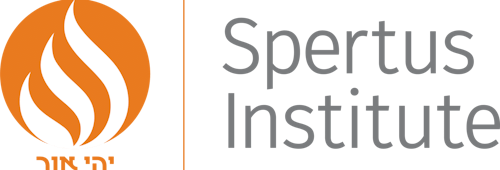Loading...


Mordy Walfish, COO of Leading Edge and a faculty member at the Spertus Institute, gave a workshop on belonging in the workplace. Spertus shares this blog post summarizing key takeaways.
What is belonging?
- Can they show up authentically? Do employees feel emotionally connected, welcomed, included, and valued for their unique contributions? Are they able to bring their authentic self to the table and express their thoughts, even if they diverge from the dominant perspective?
- Do they feel safe to share and participate? Employees should feel that they’re treated fairly and respectfully by their colleagues. They should feel connected to the organization’s mission, as well as to the people they work with.
- Can they contribute meaningfully? Staffers should feel that they’re contributing to meaningful work outcomes and common goals.
Workplace engagement trends
- Less engagement. Employees who feel the least engaged tend to be individual contributors who do not manage others, employees under age 30, employees with two years or less in their jobs, and people from underrepresented identities.
- October 7 effect. Within Jewish organizations, there is a belonging gap between those who identify as Jewish and those who do not. “There’s a feeling of existential threat to Jews that is unique to their experience in the world and the workplace right now,” Walfish said, which can lead to different feelings of connection to the organization’s mission.
- Gen Z gap. Gen Z workers are purpose-driven, seeking jobs that align with their ethics and beliefs. While many crave connection with the Jewish community, they have more diverse viewpoints on Israel than older generations. They are also more likely to leave jobs after a short period of time. All of these issues can lead to decreased workplace engagement.
Frameworks for organizations
- Distinguishing between authentic self and whole self. There’s pushback now about sharing too much at work. “Some organizations are making a distinction between authentic self and whole self,” Walfish said. While employees should show up authentically in the workplace as who they are, they should not necessarily bring their whole self and share everything that’s on their mind.
- Finding belonging outside the workplace. “We absolutely want the workplace to be a place where you feel like you belong, but it is not going to be the place where your entire essence is necessarily seen or manifested,” Walfish said. “While your manager can have a huge impact on your mental health, that doesn’t mean your manager is fully responsible for your mental health.”
- Clarifying boundaries. “People are stressed about divergent viewpoints in the workplace and a feeling of polarization, or lack of clarity, around what is it safe to say,” Walfish said. It’s important to be clear about the culture and values of the organization, as well as any red lines not to cross.
- Creating pathways. Gen Z workers may not want to stay in a job for a long time. Organizations can lean into this and create career pathways that enable Gen Z workers to transition to other organizations but still stay in the Jewish nonprofit sector.
About the Author

Mordy Walfish is Chief Advancement Officer at Leading Edge.
Loading footer...


